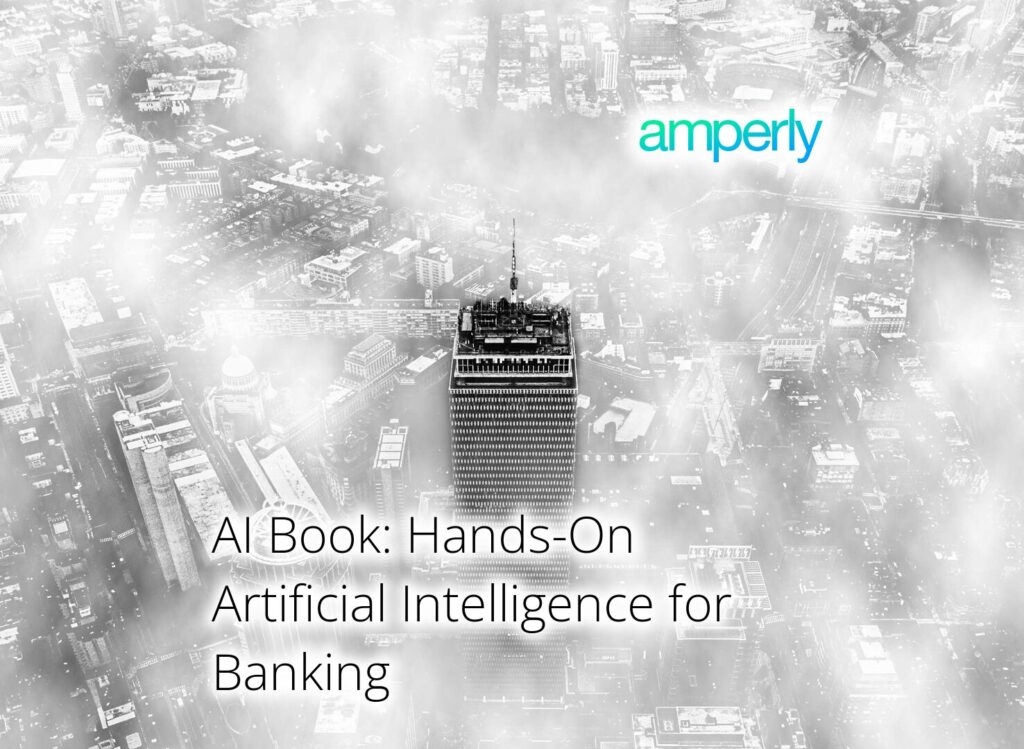Artificial intelligence in retail banking is transforming how you approach daily tasks and customer interactions. With AI at your fingertips, you have the power to enhance security, streamline operations, and deepen customer relationships. Let’s dive into how AI can reshape your banking experience and the roles you play in it.

You can find more information on AI in banking by checking out our piece on artificial intelligence in investment banking. You can learn more about AI’s role in detecting fraud in banking by visiting this link: AI in fraud detection.
AI-driven Fraud Prevention in Retail Banking
AI-driven Fraud Prevention in Retail Banking: Implementing machine learning algorithms for fraud detection is crucial. Retail banks using AI have reported a 73% adoption rate among financial institutions tackling this challenge. With AI constantly learning from transaction patterns, the system can adapt to emerging threats, enhancing security and customer trust.
Enhancing Customer Relationships with Artificial Intelligence in Retail Banking: Fostering deeper customer relationships using AI can boost engagement significantly. In fact, data shows 74% of customers expect banks to provide more personalized experiences tailored to their needs. By integrating AI into customer interactions, banks can offer timely financial advice and customized product recommendations, leading to improved customer satisfaction and loyalty.
AI-enabled Risk Management Strategies
AI-enabled Risk Management Strategies: Machine learning models can identify complex risk patterns that human analysts may miss. This early detection is critical in safeguarding your bank’s stability and profitability. By utilizing artificial intelligence in retail banking, you can make better decisions and confidently navigate the financial environment.
AI-powered Credit Assessment: Artificial intelligence can analyze customer credit histories and spending behaviors for more accurate assessments of creditworthiness. About 73% of financial institutions already employ AI technologies to strengthen their fraud prevention strategies. By embracing these insights, your bank can enhance both risk management and lending practices.
Predictive Analytics and Financial Forecasting with AI
Predictive Analytics and Financial Forecasting with AI: Banks are using artificial intelligence in retail banking to analyze complex datasets, allowing them to forecast market trends and consumer behavior more accurately. In 2023, the global retail banking market reached over $3 trillion in revenue, with growth rates of about 8% per year. This capability enables you to enhance decision-making and optimize resource allocation in your bank.
AI-Driven Fraud Prevention: Implementing artificial intelligence in retail banking can significantly strengthen your bank’s defenses against fraud. Around 73% of financial institutions are already using AI technologies to prevent fraud, indicating a strong trend toward securing customer data. By leveraging advanced algorithms, you can detect suspicious patterns, reducing the risk of significant losses.
Enhancing Customer Engagement through AI
Creating personalized customer experiences: Building personalized experiences is key for retail banks. Customers expect tailored services, yet only 74% want their banks to provide more personalization. By implementing artificial intelligence in retail banking, you can analyze transaction histories and communication patterns to tailor offerings that truly resonate with your clients.
Integrating AI chatbots for customer service: AI chatbots play a vital role in improving customer service efficiency. They help banks respond faster and more accurately to customer inquiries. A whopping 73% of financial institutions are already using AI technologies to combat fraud, showcasing the increasing reliance on automation and AI-driven tools to enhance customer engagement and safety in banking.
AI in Process Optimization for Operational Efficiency
AI in Process Optimization for Operational Efficiency: Automating repetitive banking tasks like document processing enhances workflow efficiency. According to a report, around 73% of financial institutions are already using AI technologies to enhance their operational capabilities. By reducing human error through automation, you can free up valuable resources and minimize operational costs.
AI-driven Fraud Prevention and Risk Management: Implementing artificial intelligence in retail banking helps significantly bolster security and fraud prevention measures. An alarming statistic shows that generative AI could enable fraud losses of up to $40 billion in the U.S. by 2027. With AI’s ability to analyze transaction patterns and quickly identify anomalies, you can take proactive measures against fraud and protect your institution and its customers from significant losses.
Implementation of AI-Driven Robo-Advisory Services
Implementation of AI-Driven Robo-Advisory Services: AI is transforming how banks provide financial advice. With AI algorithms, banks can analyze individual risk profiles and craft personalized investment portfolios, serving more clients efficiently. By creating tailored strategies, banks can significantly expand their customer base and boost profits, which is an essential factor as the retail banking market surpassed the $3 trillion revenue mark in 2023.
Proactive Adoption of AI Tools: Adopting artificial intelligence in retail banking is crucial for enhancing productivity and maintaining a competitive edge. For example, engaging in generative AI can lead to significant operational improvements, as almost 75% of banking tasks are suitable for automation. By revamping their strategies centered around customer relationships and operating efficiency, banks can better navigate the challenging market landscape while driving profitability.
Revolutionizing Credit Scoring with AI Technology
Revolutionizing Credit Scoring with AI Technology: You can enhance credit scoring by analyzing diverse data beyond traditional metrics, improving accuracy and fairness. AI-powered systems assess real-time indicators like spending habits and income levels to provide better risk assessments. This shift is crucial; for example, integrating these technologies can lead to quicker loan approvals and an improved loan default prediction capability, creating more opportunities for your bank.
Protecting Against Fraud with AI: AI plays a significant role in fraud prevention by using machine learning algorithms to identify transaction anomalies. By quickly flagging suspicious activities, banks can respond more effectively to potential fraud and reduce losses. Currently, about 73% of financial institutions are implementing AI for fraud detection, highlighting its essential role in safeguarding assets while enhancing customer trust.
AI-Powered Regulatory Compliance Management
AI-Powered Regulatory Compliance Management: Using artificial intelligence in retail banking helps banks automate compliance reporting and identify risk factors. The proactive monitoring of operations ensures that banks follow complex regulations efficiently. In fact, only 73% of financial institutions currently use AI technologies to fight fraud, highlighting the need for improved compliance strategies.
Enhancing Customer Engagement through AI: Implementing artificial intelligence in retail banking allows for much deeper, more personalized customer interactions. As a result, about 74% of customers want their banks to provide more tailored experiences. Stronger engagement can foster customer loyalty, ultimately increasing the bank’s profitability and growth by addressing individual needs effectively.
Streamlining Customer Onboarding Processes through AI
Streamlining Customer Onboarding Processes through AI: Implementing artificial intelligence in retail banking can speed up onboarding by automating KYC checks and form-filling. This makes the entire process faster and more efficient. In fact, 73% of financial institutions already use AI technologies to improve customer onboarding and compliance.
Continuous Monitoring for Fraud Prevention: Artificial intelligence in retail banking plays a vital role in ongoing transaction monitoring to detect and prevent fraud. By leveraging machine learning, these systems analyze transaction patterns in real-time to identify anomalies. Such proactive measures can significantly enhance customer trust while protecting banks from losses, as AI systems can help reduce fraud-related losses, estimated to reach up to $40 billion in the US by 2027.
Generative AI’s Role in Enhancing Banking Operations
Generative AI’s Role in Enhancing Banking Operations: Generative AI helps banks automate and improve their operations, boosting efficiency significantly. With nearly 75% of work in banking capable of being automated or augmented with generative AI, there’s a real opportunity to streamline activities and reduce costs. As these technologies develop, bank employees must become familiar with how to implement artificial intelligence in retail banking effectively.
Addressing Data Accuracy and Security with AI: Retail banks are facing increasing pressures to ensure data accuracy and security within their AI systems. Approximately 73% of financial institutions already employ AI technologies to fight fraud, highlighting its role in maintaining security amid evolving criminal tactics. Incorporating artificial intelligence in retail banking not only enhances security but also enables a proactive approach to mitigate potential data risks.
Artificial Intelligence Services
Artificial intelligence is reshaping retail banking in powerful ways. It enhances security, improves risk management, and fine-tunes customer interactions. Here’s a look at three important AI services that can transform your banking operations.
AI-driven Fraud Prevention in Retail Banking: AI-driven fraud prevention stands out among banking services. It analyzes transaction patterns using machine learning algorithms, spotting unusual activities that signal fraud threats. By implementing biometric verification and multi-factor authentication, banks can adapt to emerging fraud risks quickly. You can learn more about our AI services to strengthen your security protocols.
AI-enabled Risk Management Strategies: AI-enabled risk management strategies provide deeper insights into financial risks. Machine learning models identify complex risk patterns human analysts often miss. This approach allows for earlier detection of potential issues. Additionally, AI analyzes customer credit histories and spending behaviors, leading to improved assessments of creditworthiness. For more on how AI can enhance your operations, check out our artificial intelligence consulting services.
Predictive Analytics and Financial Forecasting with AI: Predictive analytics and financial forecasting with AI give banks a competitive edge. AI systems pinpoint correlations within large datasets, making it easier to gauge market trends and customer behaviors. By anticipating financial shifts, banks can optimize resource allocation and product offerings. To see how AI can impact your banking strategies, explore our AI-driven case studies.
These AI services can elevate your banking operations to new heights. What AI service are you most excited to implement? Let’s dive into a conversation about its potential!
Explore more about utilizing AI for customer service in banking with our article on AI in banking customer service.
Stay Ahead: Embrace AI to Transform Your Banking Experience
Think about what you can do to stay ahead in the rapidly changing banking landscape. First, dive deeper into AI tools available for your bank. Familiarize yourself with how these technologies can enhance fraud prevention, customer engagement, and operational efficiency. Second, share what you’ve learned with your team. Collaboration can lead to new ideas and strategies that will strengthen your bank’s performance.
If you want to learn more about implementing AI effectively, get in touch with us. We’re here to help guide you through the process. What’s your biggest AI challenge right now? Let’s talk about it!

